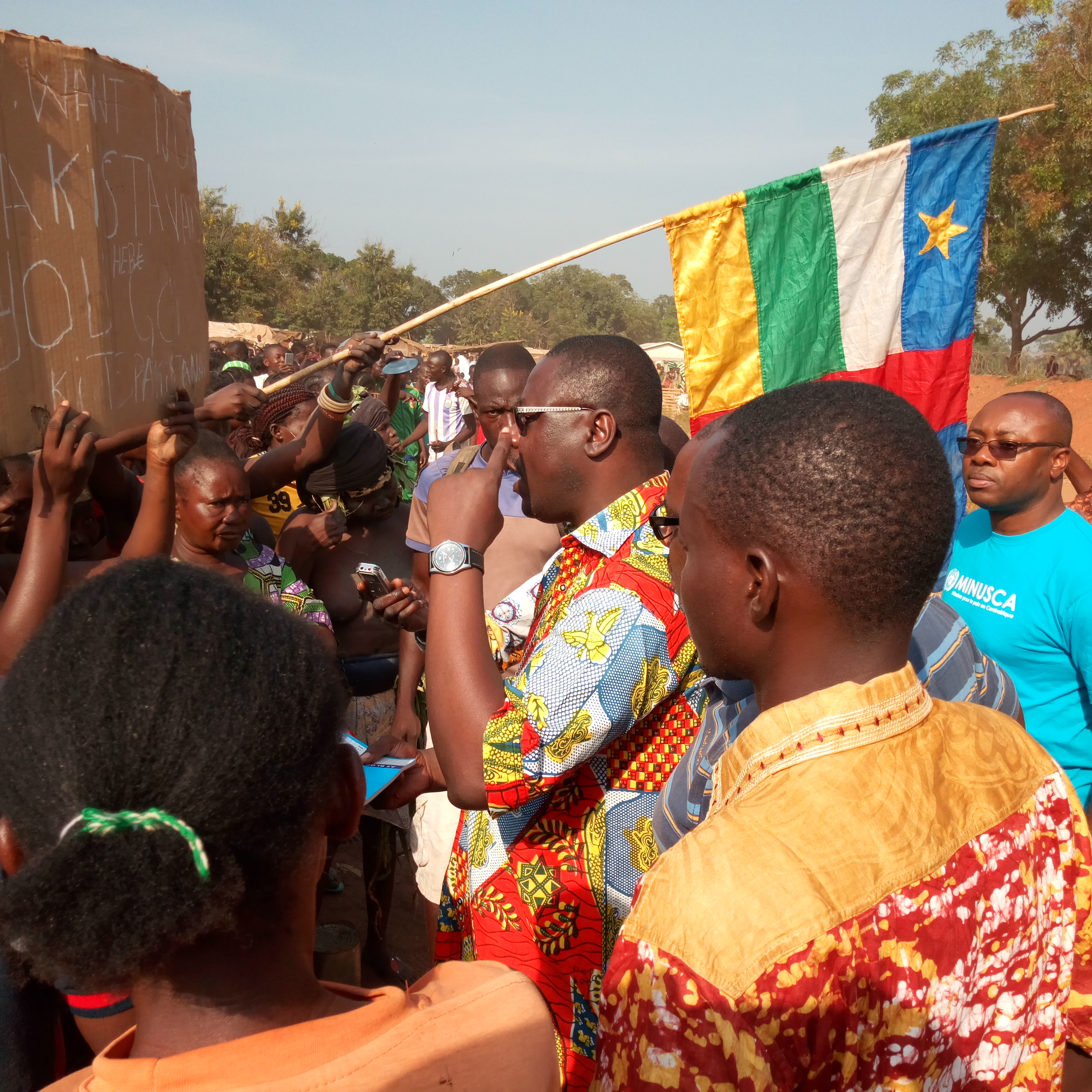Various media reports suggest that the ongoing crisis in Central African Republic (CAR) is caused by a Muslim-Christian conflict or even Islamist efforts to subdue Christians. That is not the case, said one of the country’s prominent Catholic leaders. The ongoing bloodshed, said Bishop Nestor Nongo-Aziagba of Bossangoa, president of the CAR bishops’ conference, is the result of economic exploitation—the pursuit by both state and non-state actors of the country’s rich diamond and gold deposits. “Let us not use religion to cover up exploitation,” he said speaking with Aid to the Church in Need (ACN) during a recent visit to Washington, D.C, where he attended the second annual Ministerial to Advance Religious Freedom which brought together some 1,000 religious leaders and representatives of government and non-governmental organizations, including ACN.
Bishop Nongo said that speaking about the conflict in CAR in terms of a clash of Islam and Christianity is “a diversion, a digression from the real problem of poverty, illiteracy and a lack of justice” as evident in the impunity of numerous murderous rebel groups, he added that CAR is in the grips of “a political crisis, not a religious crisis.”
In late 2012, several Muslim militia merged into the group Seleka (which means “alliance”) and attacked and destroyed non-Muslim villages, which prompted the formation of the so-called anti-Balaka, a group of largely non-Muslim militia, which included many Christians. A bloody conflict began, with both groups terrorizing both the Christian and Muslim population, causing enormous suffering and upheaval.
The record of United Nations peace-keeping forces in CAR is spotty at best. According to Human Rights Watch, there were more than 640,000 Internally Displaced People in 2018, while the UN put the number of people who fled the country at almost 570,000.
The Seleka militia— now “ex-Seleka”, because it split into different Muslim militias—“are rebels who are here to exploit, not to convert, “said Bishop Nongo, adding that these militia “are hurting Christians and Muslims alike.” More than two-thirds of the militia are Muslim mercenaries from Chad, Niger, Cameroon and elsewhere, said the bishop. However, they are not driven by an Islamist agenda, having discovered the country’s mineral wealth and seizing opportunities to enrich themselves. Many militia members moreover are not practicing Islam.
Just as the Seleka paint themselves as protectors of CAR’s Muslim majority, so the anti-Balaka proclaim they are defending the interests of the country’s Catholic majority. Both sides distort the truth, said Bishop Nongo, who charged that various rebel groups benefit from the direct or indirect support of countries like Russia and China, and even Western nations—all out to reap the benefits of CAR’s mineral wealth.
The country’s major challenge, according to the bishop, is to restore security, so that people can go home again and return to their means of livelihood, and that they “may live without being afraid of another.”
Meanwhile many adults as well as children and youth are joining militia because of the increasing poverty, the lack of education, the loss of their homes and the fear of new attacks. “We must bring an end to the people’s frustration with the brokenness of the country”, said Bishop Nongo. The weakness of the government of CAR is evident in the fact that the country has “hardly any roads, and that some 80 percent of the country is controlled by rebel groups”: in the northeast of CAR, locals trade with Sudan and are using Sudanese currency; in the southeast of the country, economic activity is centered on the Democratic Republic of the Congo (DRC), with DRC currency in local use. The bishop asks: “where is our state’s sovereignty?”
The Church in CAR is strongly committed to foster Muslim-Christian dialogue, said Bishop Nongo, a dialogue “of living together, of meeting together” and showing each other respect. It is crucial, he said, that Christians and Muslims show that they are united” in opposition to violence perpetrated in their name.
In February 2019, the CAR government signed a peace agreement in Khartoum, Sudan, with more than a dozen rebel groups. But Bishop Nongo is dubious about the long-term impact of the peace treaty, as the various militia signatories “interpret the agreement in conflicting ways.”
“As a good Christian, I have hope for the future,” said Bishop Nongo, but “I have to be realistic: it is proving to be very difficult to overcome the violence of the past seven years.”
—Joop Koopman





